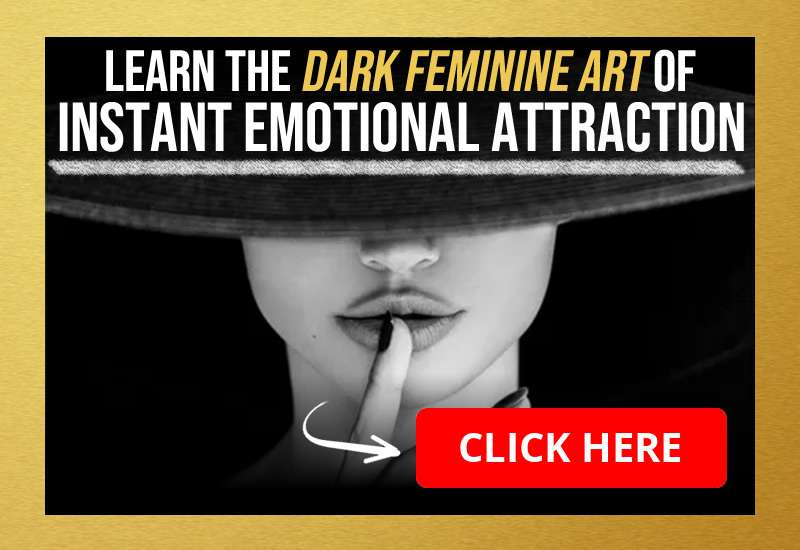NCRW
5 Typical Rebound Relationship Stages To Know To Avoid Heartbreak
Author: Kyrsta Anderson
We’ve all heard of the dreaded ‘rebound relationship’, which is mostly dreadful if you’re the rebound.
If you’re getting into a relationship with someone who just ended things with a long term partner, there can be a lot of questions and uncertainty about the legitimacy of the relationship and their intentions.
On the other hand, if you just got out of the relationship and are on the rebound, it can be really difficult to discern if you truly do want to be with this person, or if they really are just the rebound.
Table of Contents
What Is A Rebound Relationship?
Let’s get a clear definition here:
A rebound relationship is when a person that has recently gotten out of a long term relationship quickly enters a new one, usually without being completely over their ex.
While not all rebound relationships are doomed to fail, rebound relationships frequently involve a lot of emotional confusion where both parties can end up hurt.
Sometimes rebound-ee’s enter these rebound relationships unexpectedly, but sometimes they do it intentionally to
- Get over their ex
- Make their ex jealous
- Ease the loneliness
So how do you know you’re in a rebound relationship?
Better yet, how do you know if you’re in one that’s going poorly? Here are five typical rebound relationship stages you should be aware of to answer all of these questions and more.
The Rebound Relationship Stages
#1: The Seeking Comfort Stage
The first of the rebound relationship stages is when the rebound-ee selects their rebound.
After a breakup, people can be extremely vulnerable and crave both the physical and emotional connection they once had. So they seek out something that is comfortable and familiar.
This often looks like reaching out to an old flame, or simply latching on to the first person that they get along with.
The rebound-ee can also latch onto the first person who exemplifies considerable differences from their ex, justifying it in their minds that the same problems won’t occur in this new relationship since the two people are so different.
This stage can really make or break a rebound relationship; if the rebound-ee chooses their rebound primarily based on their own loneliness and comfort level, it does not build a true connection.
It is important to note also, that it is only with a true emotional connection that you really get to be the 'one and only' woman in a man's eyes.
Interestingly, when you're the one and only, you will be second to none to a man. Literally no other woman will ever be competition to you, because once you're in the one and only basket, you're the only woman who can be put there.
If you want to learn more about becoming the one and only (and always be put in that basket by men), CLICK Here to learn about becoming the one and only.
#2: The Honeymoon Stage
The loveliest of all the rebound relationship stages, this is the calm before the storm.
Everything is going great with the new partner, the rebound-ee feels a level of comfort being in a relationship again and having someone close, and the freshness of dating someone different.
This stage is very temporary, as since the relationship is still new, the red flags haven’t really appeared yet.
A lot of times in a rebound relationship, however, the person may try extra hard to show off their new relationship when in the honeymoon phase in order to
- Make their ex jealous.
- Convince themselves that they’ve moved on.
- Convince family and friends that they are okay.
This can look like a lot of social media posts about the new relationship, or introducing their new partner to friends and family quickly.
If you feel like your new significant other is moving really fast and making a huge effort to make your relationship known, it may be time to sit down with them and have a chat about where these actions are coming from.
#3: The Emotionally Unavailable Stage
Even in non-rebound relationships, there is always an end to the honeymoon phase. After the honeymoon phase things tend to get more serious.
This should be the time in a relationship where the two parties begin to open up and understand each other on a deeper level, but if someone just got out of a previous relationship, you may start to sense that they’re holding back.
This looks like:
- The inability to open up.
- Pushing you away.
- Shying away from talking about their emotions.
Related: 13 Warning Signs Of An Emotionally Unavailable Man.
This is really common after the honeymoon phase, when things get more real and the person starts to shut down, realizing maybe they aren’t ready for a relationship.
Frequently this is the stage where the new relationship has its first fight or disagreement, and the “fight or flight” phenomenon is triggered.
In fight or flight, the rebound-ee may either run away from any problems or choose to fight more.
Overall, if you’re in a relationship with someone fresh out of one and they can’t open up, take this as a sign that this rebound relationship is not heading in the right direction.
Recommended: 14 Definitive Signs Of A Rebound Relationship & FAQ.
#4: The Trauma-Triggered Stage
The honeymoon phase is over, and you’re starting to see signs of emotional unavailability in the rebound-ee.
It’s becoming more and more obvious that the relationship isn’t perfect, the cracks that formed get bigger and deeper.
Communication is poor, resentment is building, and comparison between the new partner and the ex starts to form.
If you’re with someone that is constantly bringing up their ex, or getting really upset about actions that remind them about their past relationship, this is a big sign that you’re in a failing rebound relationship and their past relationship trauma has been triggered.
While it’s fine to have conversations about past relationships, it should not be a constant and frequent comparison.
On the other hand, if you find yourself repeatedly bringing up your ex or triggered by situations that remind you of them, this could be a sign you haven’t fully healed from the past relationship.
All the feelings and hurt that were bottled up until this point starts to bleed over into this new relationship.
Also, the signs that were ignored in the honeymoon phase start to become more prominent and harder to ignore.
If you’re the rebound-ee, you may start to realize that this person isn’t as perfect as you thought they were in the seeking comfort stage.
There Are 7 Common Signs That A Woman is Perceived as Low Value to All Men. Do You Know What They Are & How to Avoid Them Like the Plague? CLICK HERE to Find out What these 7 signs are.
#5: The Realization Stage
This is where everything comes to a head, and the rebound-ee has a full epiphany that they haven’t completely healed from the relationship and they need to evaluate if this new relationship is truly what’s best for them and their new partner.
The post-explosion realization stage can be a very painful one for both parties.
There is, however, something really beautiful and freeing about finally reaching this stage for the rebound-ee.
They realize that they can’t hide their feelings and push down their pain by finding another person, the work has to come from them first!
On the other hand, if you’re in the opposite position this is the stage where you realize that your partner hasn’t healed from their past relationship, and you also need to think about what’s best going forward.
It’s important for both parties to think of what they want in a relationship and what qualities they want in a partner.
Rebound Relationships: Pros And Cons
So, those are the five typical rebound relationship stages you should be aware of. Rebound relationships can sound pretty messy, I know. So why do so many of us get into them? And are they really all that bad?
As mentioned previously, there are a few big cons that come with rebound relationships. These include:
- The relationship being a temporary distraction that inhibits healing
- Hurting the other person; and
- The possibility of going through another heartbreak.
There are, however, some pros! In fact, some say that rebound relationships can be extremely healthy and beneficial despite their outcome.
As Theresa of Psychology Today says:
"A rebound relationship might make you feel good and boost feelings of self-worth [even if well-meaning friends and family around you are questioning it."
Rebound relationships can give you hope for the future, showing you that you can connect with someone else besides your ex.
It can give you a reboot in your confidence, which is frequently diminished after a hard long term breakup.
Do Rebound Relationships Help You Move On?
Even though it is a fine line, rebound relationships can even help you get over your ex faster. Since your time and thoughts are preoccupied with someone new, you stop obsessing over your ex.
Furthermore, and this one is a big one, they prevent the dreaded post-breakup ritual that I like to call the relapse:
The relapse is when you get back with your ex for a brief period of time after the break up (even if your ex is toxic).
Relapse is inevitable in a lot of relationships, old habits die hard.
If you find a rebound relationship with a person you enjoy spending time with, it can be really healing and save you the pain of the relapse.
Do Rebound Relationships Always Fail?
While the success of rebound relationships is slim, it is not impossible.
If you are the one on the rebound, be open and communicative about your current position and what you just got out of, and what you want this new one to be.
If you are the one dating someone fresh out of a relationship, it is important to be aware of these rebound relationship stages.
The more you’re aware of the signs and stages, you can see how this rebound relationship is going and adjust accordingly.
As someone who is now in a two year long successful rebound relationship right out of a four year relationship (crazy, right?), I can personally testify that they do not always fail. While it may take a lot of work and communication, you may find that your “rebound” was put in your life for a reason.

Kyrsta is a graduate from Chapman University, where she majored in Business Marketing. She resides in Los Angeles with her boyfriend. In addition to blog writing, she is currently working as an agency signed model and a nanny. Her passions are fashion, health and fitness (especially yoga) writing, reading, and spending time in nature.
Kyrsta Anderson
Author For National Council for Research on Women
P.S. I hope you've enjoyed this article. Here are some other articles that I think you'd really like too...
© Copyright National Council for Research on Women. All Rights Reserved
